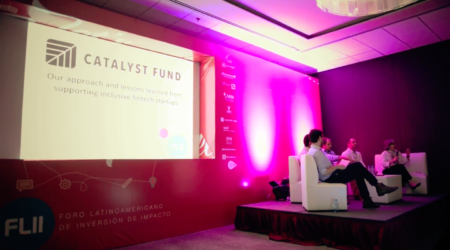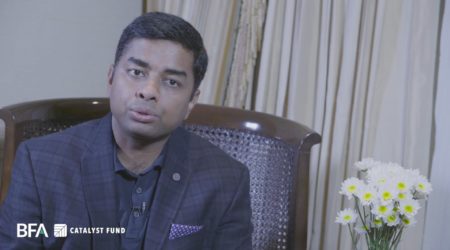Catalyst Fund welcomes new cohort of inclusive fintech startups
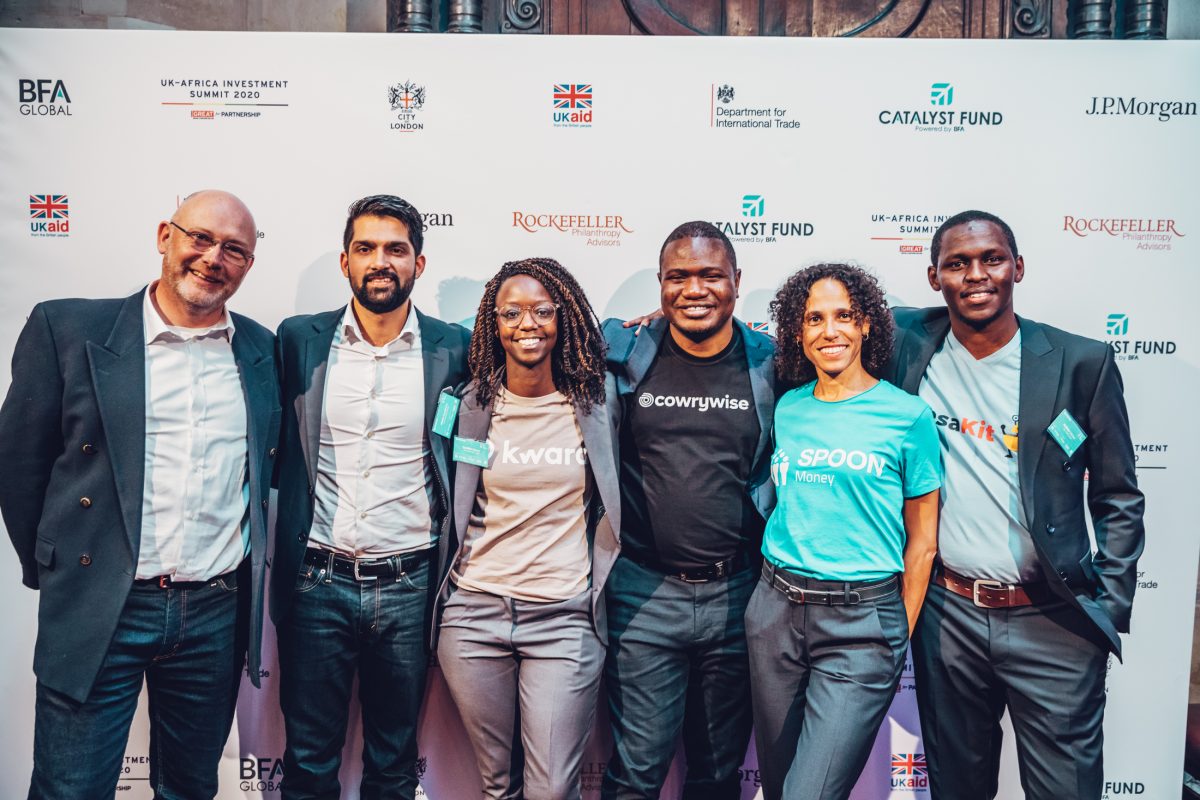
Catalyst Fund welcomes new cohort of inclusive fintech startups creating solutions to improve the financial health of underserved communities and small businesses
On 20th January, at Guildhall in London, we officially announced the expansion of global inclusive-fintech accelerator Catalyst Fund, with a $15M commitment from UK aid and J.P. Morgan to advance financial inclusion and improve the financial health of millions of underserved people across the world. Over the next three years, Catalyst Fund, managed by BFA Global, will support the growth of 30 startups across five key emerging markets for fintech innovation: Kenya, Nigeria, South Africa, India, and Mexico.
We also introduced the newest cohort of startups to join the Catalyst Fund family. These six companies are tackling crucial challenges in their respective markets – working to improve the financial health of underserved, fill last mile delivery gaps and provide additional income opportunities for micro and small business owners across Africa and India. These nimble, creative and locally-rooted entrepreneurs are uniquely positioned to create affordable and appropriate solutions to address these challenges.
Learn more about our latest innovators:
Cowrywise presents a smart solution for savings and investing, designed for Nigeria’s underserved digital generation
With a population of 214 million, of which nearly 62% are below the age of 25, Nigeria presents an opportunity to pioneer how the next generation of young people will approach saving and investing. However, today just 400,000 Nigerians have invested in mutual funds, and education around savings behaviors and investments is severely lacking.
Capitalizing on the proliferation of mobile connectivity and the growing youth population, Cowrywise is offering a smart platform through which young Nigerians can easily save and invest – starting in small increments – and develop healthy saving habits for the future. The app offers structured savings plans with customer-led goals, financial education, and secure investment portfolios designed for Nigeria’s low-income population.
Pesakit is empowering a network of mobile money agents to more efficiently distribute digital financial services to low-income consumers
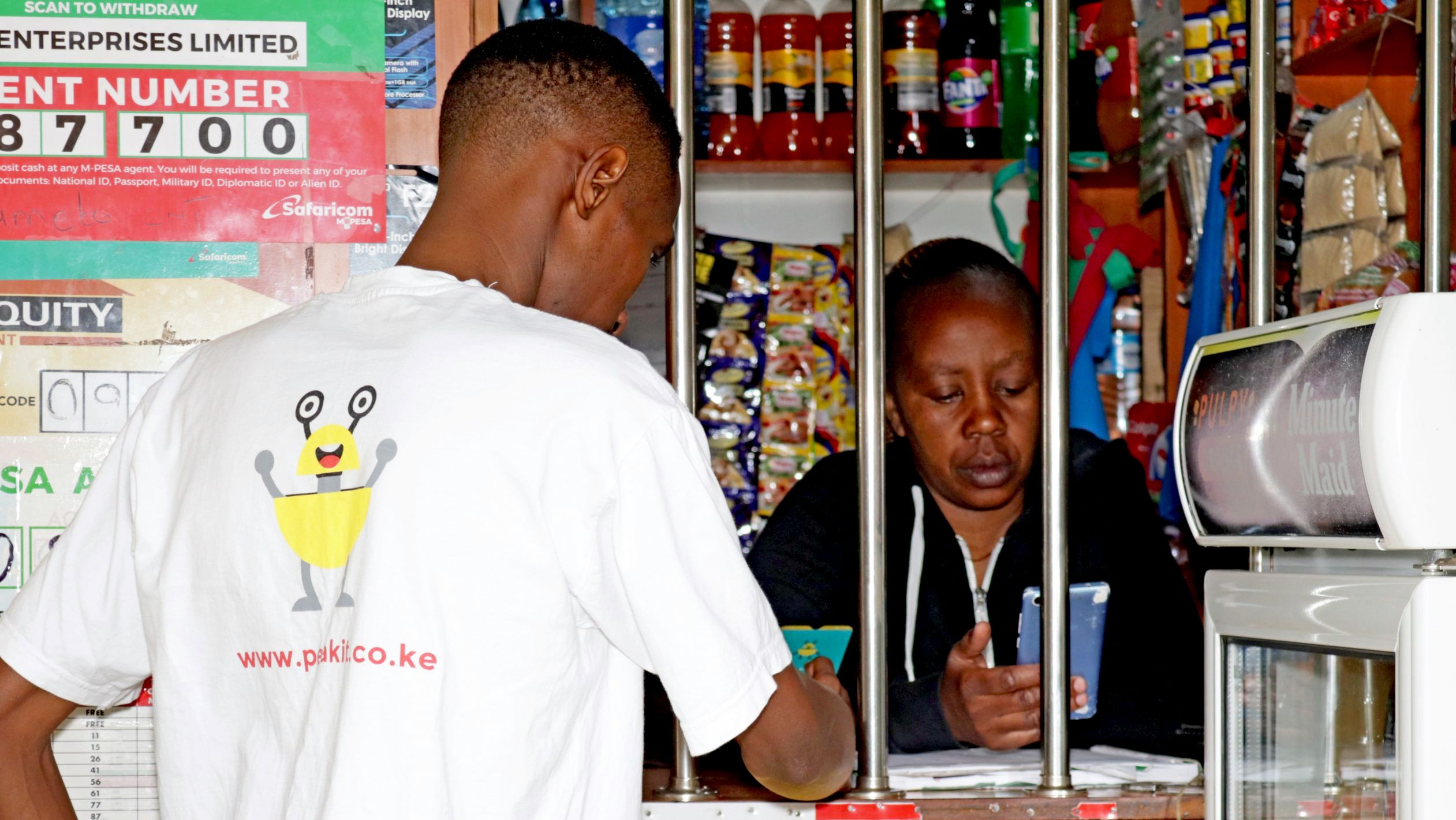
A Pesakit mobile money agent visited by a member of the team in Kenya
In Kenya, there are 9.2 ATMS, five bank branches, and over 535 mobile money agents for every 100,000 people. Mobile money agents represent the face of mobile money services for Kenyans, and many underserved people around the world. In 2018, $1.3 billion was processed daily by the global mobile money industry.
However, agents continue to face challenges on the supply side when it comes to liquidity. They are often unable to service customers due to insufficient cash or e-float. Pesakit aims to improve the financial health of these agents and the communities they serve by offering access to affordable working capital loans, enabling agents to rebalance float on demand.
Additionally, Pesakit’s app empowers agents to make smart financial decisions via cash flow analytics and insights, and creates new revenue opportunities for them. With Pesakit, agents are transformed into digital merchants, using the platform to sell digital services (such as airtime and electricity tokens) and micro insurance, as well as becoming ecommerce delivery and collection points for the communities they serve. This will increase the number and variety of financial services that Kenyans living in peri-urban and rural areas can access via trusted access points.
Spoon Money transforms female-owned subsistence businesses into sustainable micro-enterprises via affordable credit and savings tools
Today there are five million informal micro-enterprises in South Africa, and 41% of them are owned by women. Due to the informal nature of their businesses and fluctuations in income, these women lack access to the credit and other financial tools needed to grow their businesses.
Spoon Money offers affordable credit and savings solutions to female-run informal business owners, via non-bank savings groups, or stokvels, while helping them to better save and plan for the future. Spoon digitizes age-old savings groups, keeping their information secure and giving a cash injection to micro-business owners at the right time.
Kwara is digitizing the informal group savings sector in Kenya, with a goal of reducing barriers to financial inclusion for low-income Kenyans
Today, 30% of savings in Kenya takes place via SACCOs, or Savings and Credit Cooperatives, which account for over $7 million in assets. These cooperatives serve low-income, underbanked populations and provide loans at affordable interest rates.
However, inefficient manual operations, tight regulation, lack of fraud prevention, and exclusion from the digital financial sector prevent them from effectively serving their members. Kwara aims to digitize cooperative financial institutions by offering a Banking Platform-as-a-service and credit scoring capabilities to SACCOs, and access to banks and ATMs for cooperative members. By connecting SACCOs to the formal financial system, Kwara will bring safer, faster, and more diverse services to underserved populations.
Meerkat aims to improve the financial health of South Africans via debt counseling, a customer-centric savings tool, and more affordable funeral and life insurance
There are nine million formally employed adults in South Africa, but there are over 20 million who face debt. Access to credit has become abundant in this market, but many struggle to effectively manage and pay off what they borrow, causing them to spiral into a cycle of debt as they look for new ways of paying off existing loans.
Meerkat offers a debt counseling and refinancing solution designed to help low-income families streamline their repayments and free themselves of debt sooner. They also help families establish healthy savings habits and plan for the future as they find more sources of liquidity to manage their day to day expenses. In joining Meerkat, these families can find a suite of services, advice, and support to get (and stay) on a path to financial health.
farMart seeks to reduce extreme poverty faced by farmers in India with accessible and affordable lending products, delivered by small agri-merchants
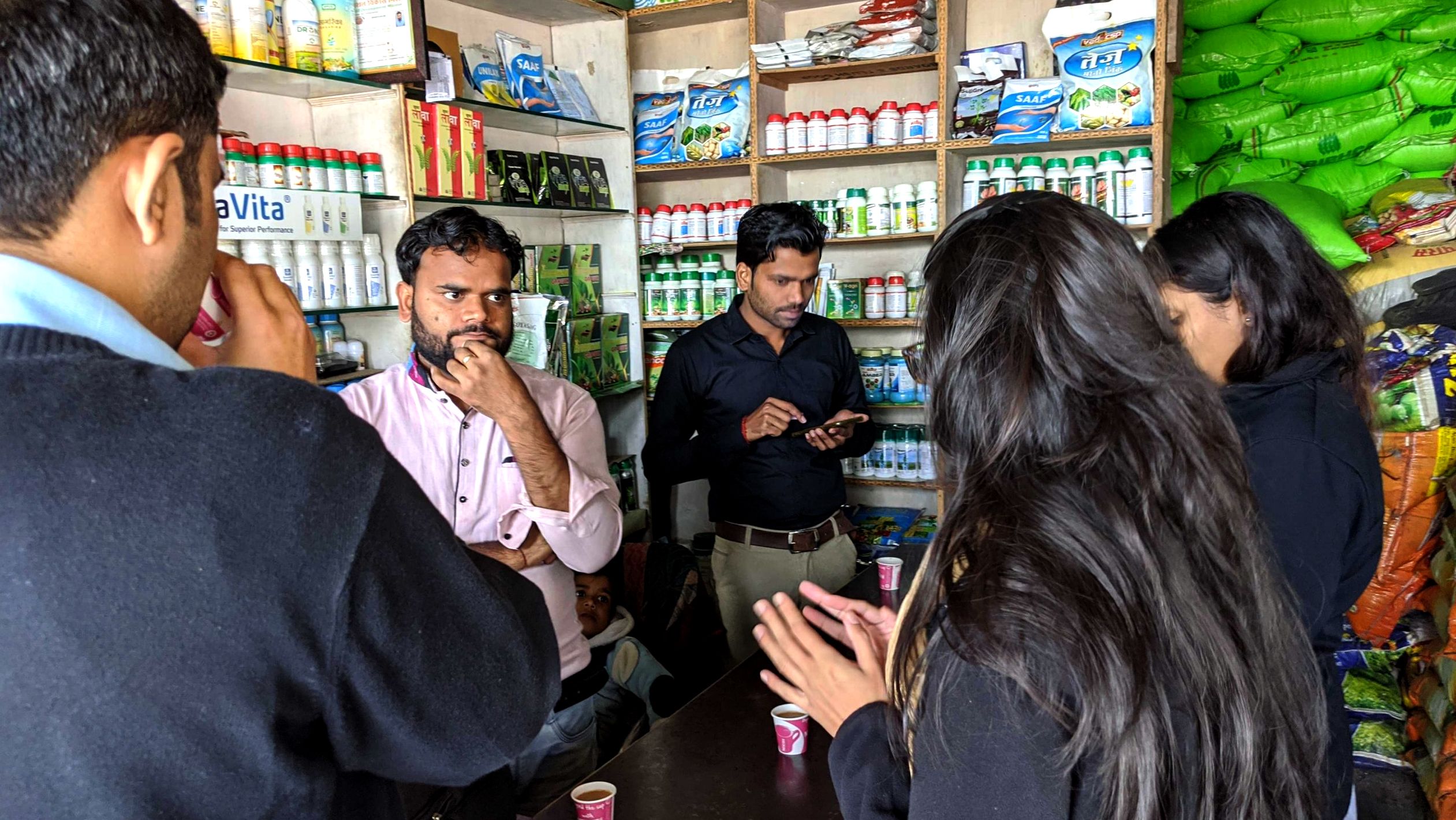
Catalyst Fund team visits farMart agri merchants in Lucknow, Uttar Pradesh
61.5% of Indians today derive their livelihoods from agriculture. There are an estimated 430 million smallholder farmers in India, who collectively require $200 billion annually in financing to successfully tend to their farms. However, formal financial institutions are able to meet only one sixth of that requirement, and many hesitate to lend to this segment of the population.
Through their lending platform, farMart aims to improve the financial health of farmers in India and turn agriculture into a desirable career path for Indian youth. Leveraging a network of agri merchants where farmers purchase seed and other inputs, farMart offers affordable loans based on invoices, while helping merchants to gather data on the credit worthiness of farmers who borrow each season. farMart capitalizes on familiar and trusted touch points to reach some of the hardest-to-reach smallholder farmers across India.
We’re thrilled to welcome these incredible businesses into the Catalyst Fund portfolio. Over the next several months, they’ll receive bespoke, hands-on venture building support to help them iterate on their solutions, dive deeper into customer insights, better analyze their data, become investment-ready, improve their marketing strategies, and ultimately find product-market fit. In addition, they’ll receive £80,000 in flexible grant capital to help them bridge the gap until they are able to raise follow-on funding from impact and commercial investors.
They’ve already joined us for our official expansion announcement in London this month to pitch their solutions on stage for an audience of over 300 investors, startups, donors, market facilitators and more. We look forward to working with them and gathering insights on how accessible, affordable and appropriate solutions can advance the financial health of underbanked communities, farmers and women entrepreneurs across the world.

